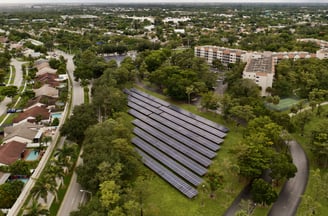Sustainable Urban Development
Background
Sustainable urban development is a response to the growing challenges posed by rapid urbanization, resource depletion, and environmental degradation. It emphasizes designing cities that balance economic growth, social equity, and environmental stewardship. As global populations increasingly concentrate in urban areas, the need for sustainable practices has become a priority for ensuring the longevity and livability of cities.
Specific Areas
Integration of renewable energy systems into urban planning
Development of green infrastructure, such as urban forests and wetland restoration
Policies for circular economies to reduce urban waste and promote resource efficiency
Planning for mixed-use developments that minimize sprawl
Incorporation of sustainability metrics in urban design


Applications
Sustainable urban development practices are applied in creating energy-efficient buildings, establishing low-emission public transportation systems, and implementing green zones in densely populated areas. They also involve developing smart grids and integrating urban agriculture to ensure food security. Local governments, private developers, and urban planners use these strategies to shape eco-friendly and resilient urban landscapes.




Transformations
By adopting sustainable urban development practices, cities achieve enhanced resilience to environmental changes, reduced carbon footprints, and improved quality of life for residents. These practices also stimulate green job creation and foster more equitable and inclusive urban communities.

